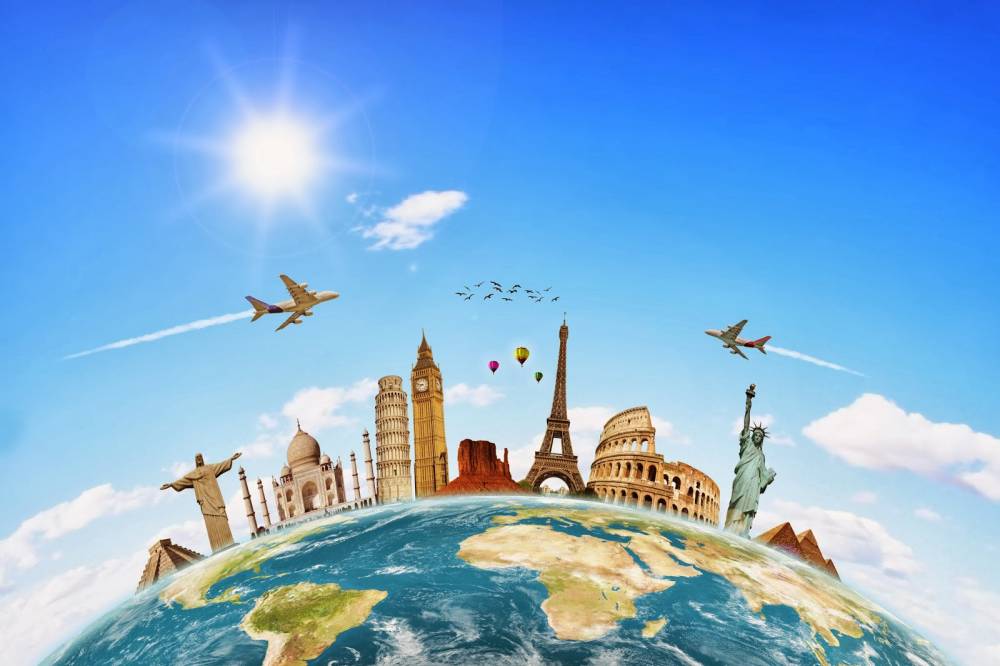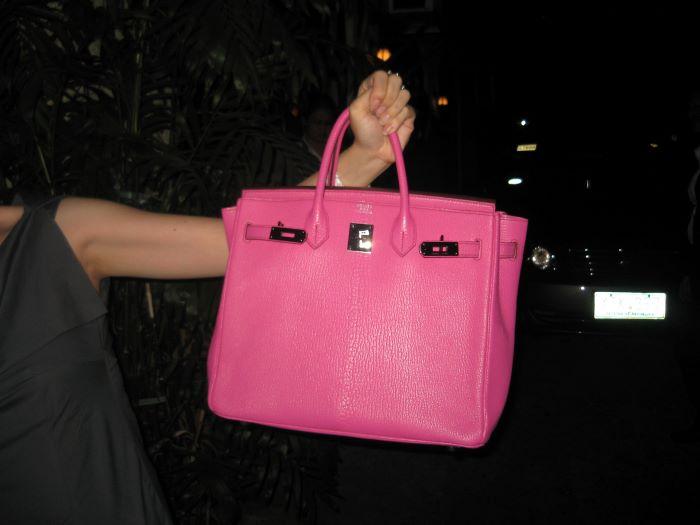
The world isn't dangerous or unsafe. Quite the opposite. There are some desperate places and people, even in your home town, but these are a minority. In fact, you're more likely to get into trouble at home than travelling if you follow these common sense tips on your trips.
1. Back (packer) glance
Get in the habit of looking back when you get up to leave somewhere. Travel is very distracting, and you're probably carrying more stuff than when you're at home, so you're more likely to leave a jacket or journal at that Parisian cafe table where you were people watching.
2. Separate your sources of money
You know how you keep all your bank cards in your wallet/purse when you're at home? Well, don't do this while you're travelling. Keep at least one in a different place, preferably not on your person. If you lose all your cards on the road it is very difficult to get replacements, and being without money in Timbuktu can be kind of unfunny.
3. Don't keep your wallet/purse in your jeans' back pocket
To avoid being pickpocketed, keep your wallet in your front pocket, especially a pocket that can be buttoned up. Best of all, use the inside pocket of your jacket. There are also a load of different 'money belts' (see examples here) that either hang inside your shirt or wrap around your waist (under your shirt), etc. Make sure it's waterproof because travelling can often be sweaty/perspiring work.
4. Scan all your major documents
Scan your travel documents and email them to yourself. It was traditional to photocopy your passport and visas, travel insurance etc., and keep them in a separate part of your luggage. But that's old school. These days, digital is best - that way your documents won't go missing even if your bags do.
5. Don't trust strangers who wear turtle neck/polo neck tops
Only kidding about the turtle necks. It is hard to get to know the locals at a destination if you don't trust them, but there are limits to how much you should trust them when it comes to your personal safety (going with them into a risky area of town), money, and consuming their food or drink (if they are not consuming it themselves). Do a search on Lonely Planet's Thorn Tree forum for the latest scams that travellers have reported for where you are going. Also, look at the 'Dangers and Annoyances' sections in your Lonely Planet guidebook and ask your hotel/hostel staff for safety tips.
6. Get travel insurance
This is mainly for health costs if you get ill or injured while abroad. Hospital costs can quickly get into the tens of thousands of dollars, even for a minor injury. Insurance is worth it. We love these guys.
7. Get vaccinated
Visit your doctor before you leave to get all the relevant vaccinations/immunisations for the destinations you're visiting, and to learn what health precautions you should follow.
8. Avoid PDAs
Public Displays of Affluence (not affection). If you're travelling abroad then you're more than likely to be richer than most of the locals, but advertising this fact by wearing gold jewellery or carrying a $2000 camera around your neck is not advisable. It makes you a target for thieves. Leave your jewellery at home and keep your camera in a bag when you're not using it.
9. Some things are best perfected at home
It may seem like a breeze, but be advised that teaching yourself to ride a motorbike or Jet Ski in a foreign country is probably unwise. In Thailand, for instance, 38 people a day die in scooter accidents. Some travel insurance policies won't cover scooter-related injuries so make sure you check your travel insurance first.
10. Check the fine print and certificates of instructors
If you're doing a specialist course (scuba diving) or something risky (bungee jumping) then check the operators have legitimate qualifications and a good safety record. There's usually a reason a course is cheaper than the others. PADI has a list of qualified diving operators here.
11. Don't leave your belongings unattended in public spaces
This is so obvious that I am embarrassed to mention it, but people do it all the time. Most notably, travellers leave their bags at their feet or hanging from the back of chairs when they're at cafes or restaurants. Either keep them on your lap or wrap its strap around your leg.
12. Give it up
There is a simple rule that people find hard to follow: if you are mugged, give over your wallet, watch etc. This shouldn't be a problem if you have insurance and you've left all your irreplaceable stuff (eg grandma's necklace) at home. Just do it, and walk away uninjured.
13. Don't give to beggars
There are exceptions to this rule, such as monks seeking alms. But, in general, don't give away money to people on the street. Apart from the fact that you may have to get your wallet/purse out, encouraging begging is not the most efficient use of your money (and goodwill). If you want to help out then do some volunteer work in the destination or donate some money to a local charity for the homeless or loan some money to a poor entrepreneur via Kiva.
14. Be wary of using your credit card at an internet cafe
Internet cafes' computers may have key logger software or hardware that records your key strokes, so unscrupulous characters (not necessarily the owners of the cafe) can see the username and password to your online accounts (banking, email etc.) or grab your credit card details. A good trick to make this more challenging for them has been proposed by Thorn Tree user Karlo: open a couple of other browser windows (for the website you are using) and half way through entering your passwords or credit card information type incorrect information into these windows.
15. Your worst enemy may be your travel companion
Often your travel companions will take risks that compromise your safety. They'll ask for help from people that you wouldn't go near, they'll aggravate a situation with arrogance, or they'll break any number of the no-nos mentioned above. Don't submit to their peer pressure. Stand your ground. And if they continue to be unsafe then consider parting ways.





